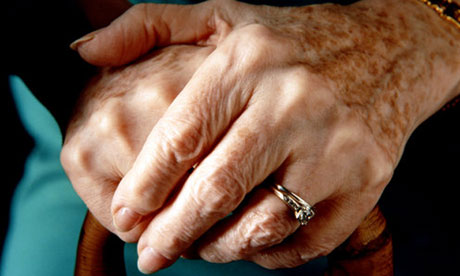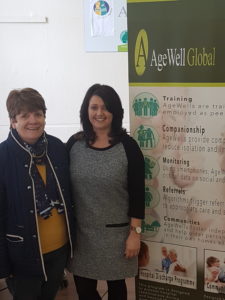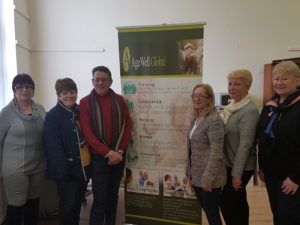

A service that is tackling loneliness among elderly Limerick people is in danger of being discontinued due to lack of funding. Simon Bourke reports.
THE first programme of its kind in Europe, AgeWell Ireland, operated in conjunction with St Munchin’s Community Centre, provides companionship and friendship to people aged 60 and over who are experiencing isolation or loneliness.
By pairing them with specially trained companions, who visit them on a weekly basis, the free service seeks to provide comfort and support to older adults who are experiencing chronic loneliness.
Those availing of the service have reported a significant increase in their wellbeing after just four months. A series of assessments has found that there was a 33 per cent decrease in the number who described themselves as lonely and a rise of 63 per cent in their self-rated health.
However, despite the success of the programme, it may cease to exist by the end of next month. Initially rolled out in 2017 on a nine-month trial basis, AgeWell Ireland has since received two extensions, the latest of which runs till March 31.
There are currently no immediate plans to extend the scheme further, meaning the 70 elderly people who use it will no longer receive the weekly visits they have to come to rely on.
Patricia is in her seventies and lives in Corbally. Since the death of her husband seven years ago she has become increasingly lonely, weekend visits from her working children and occasional calls from busy neighbours only partially helping to break the monotony. And although she had qualms about signing up to AgeWell six months ago, they have since been quelled.
She was enrolled in the programme, much to her surprise, by her daughter: “’What are ye doing to me?’ I said. ‘How will I cope with a person coming in that I don’t know? What’ll I talk about?’”.
Yet, upon meeting her carefully selected companion, Ann, those qualms were quickly alleviated: “I look forward to it,” she says when asked about the visits. “Ann rings to let me know when she’ll be around and I’m waiting for her when she comes.”

But what do they talk about, and how did she cope with a person coming in that she didn’t know?
“There’s no plan. We talk about the sad things that are going on in the world. I enjoy Ann, I don’t feel anyway uncomfortable with her coming in and talking to her.”
And the service works both ways. Ann Hourigan retired from her career as a nurse two and a half years ago. However, rather than enjoy her retirement, she sought out a new career, something which didn’t involve the stresses or strains of her previous profession.
“When I got this job I thought, ‘there is a God, this is exactly what I’m looking for.’ Although she visits six clients per week, and speaks with them on the phone every day,
Ann admits that being one of the Europe’s first Age Wells doesn’t really feel like a job, “when I was in the working world I was running from one person to the next, whereas this is a part of my life that has slowed down and I can slow down with my clients and give my time to them,” she says, adding, “I’ve built up such a rapport with my clients that even if we didn’t get funding I’d still keep in touch.”
Designed to pair the elderly with like-minded companions, Age Well only employs those aged 55 and over.
“It’s a peer-to-peer companionship programme,” explains Programme Manager, Carmel Boland,” it seems to work, our clients can identify with people who’d be in an age bracket to understand what they’re going through.”
And the role isn’t just confined to those with previous experience in care support, the nine Age Wells come from all walks of life and receive specialist training before being paired with suitable clients.
“Everybody has had quite intense training, they would have gone through the different situations they would have come up against. It’s helped establish some of the skills they needed to be able to take part in this type of work.”
Carmel is quick to point out that this service addresses a need as yet unfulfilled by the public sector, “It’s not anything like home help, home care packages, that’s fulfilling a need around personal care, this is a different type of need that people would have identified, someone they can talk to about things that worry them.”
This need for human interaction is quite stark in some of their clients explains Care Coordinator, Deirdre Hogan. She describes a client who regularly called the Dublin-based service, Alone, just so he’d have someone to talk to, staggering his calls over the course of a few hours so he wouldn’t speak to the same people: “He said it was like winning the Lotto when he discovered we were starting up this service here.”
Although currently only operating in the city, Carmel is acutely aware of the need to extend the programme to include rural areas. Yet with a lengthy waiting list, and just nine Age Wells to go around, the emphasis for now is on giving as much time as possible to those already using the service.
Her hope though, is that eventually the programme will be run on a national level: “There’s no reason why it can’t run nationally,” she says. And were it to run throughout the country, Carmel is quick to point out that it will be available to everyone, regardless of their background or financial means, “We go into the most fabulous houses, we go into houses where people might not have much, loneliness does not discriminate, that’s the bottom line.”










